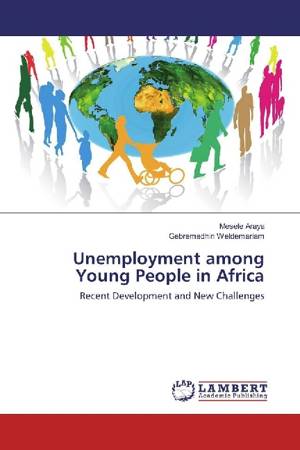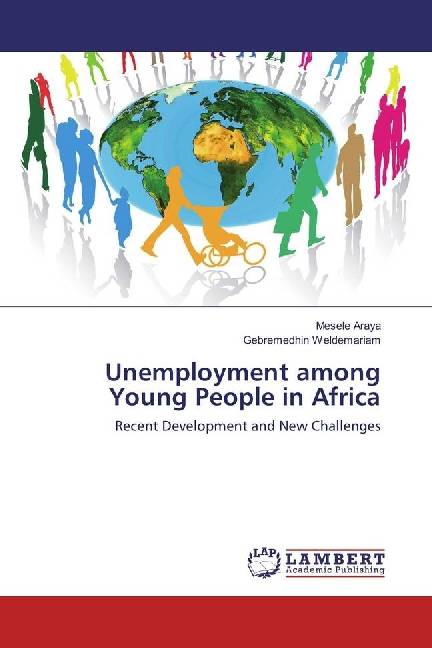
Je cadeautjes zeker op tijd in huis hebben voor de feestdagen? Kom langs in onze winkels en vind het perfecte geschenk!
- Afhalen na 1 uur in een winkel met voorraad
- Gratis thuislevering in België vanaf € 30
- Ruim aanbod met 7 miljoen producten
Je cadeautjes zeker op tijd in huis hebben voor de feestdagen? Kom langs in onze winkels en vind het perfecte geschenk!
- Afhalen na 1 uur in een winkel met voorraad
- Gratis thuislevering in België vanaf € 30
- Ruim aanbod met 7 miljoen producten
Zoeken
Unemployment among Young People in Africa
Recent Development and New Challenges
Mesele Araya, Gebremedhin Weldemariam
Paperback | Engels
€ 35,45
+ 70 punten
Omschrijving
Though Africa's current young cohorts get better access to education than their parents' generation did, majority of them get blocked at the labor market entrance. Taking this into account, we tried to identify the major culpable factors using cross-countries analysis. The findings show that Africa has recently drowned in trouble to create productive jobs for a population that is predominantly young, poorly educated and growing rapidly. The official youth unemployment rates are as high as 40% in countries like South Africa, Nigeria, Reunion and Tunisia in 2012, with far-reaching consequences on their human and social capital. The most important challenges are found to be lack of aggregate demand, skill mismatches & deficits, labor market information shortage, unproductive labor & naive expectation to government jobs; rigid labor market regulations & institutional setbacks. This signifies that African governments and policy-makers alike need to search new ways to improve the human capital of the youth. Otherwise, it seems hard to go a long way either in creating jobs for the growing youthful population in particular or in sustaining the human development of the continent in general.
Specificaties
Betrokkenen
- Auteur(s):
- Uitgeverij:
Inhoud
- Aantal bladzijden:
- 64
- Taal:
- Engels
Eigenschappen
- Productcode (EAN):
- 9783330016194
- Uitvoering:
- Paperback
- Afmetingen:
- 150 mm x 220 mm

Alleen bij Standaard Boekhandel
+ 70 punten op je klantenkaart van Standaard Boekhandel
Beoordelingen
We publiceren alleen reviews die voldoen aan de voorwaarden voor reviews. Bekijk onze voorwaarden voor reviews.









